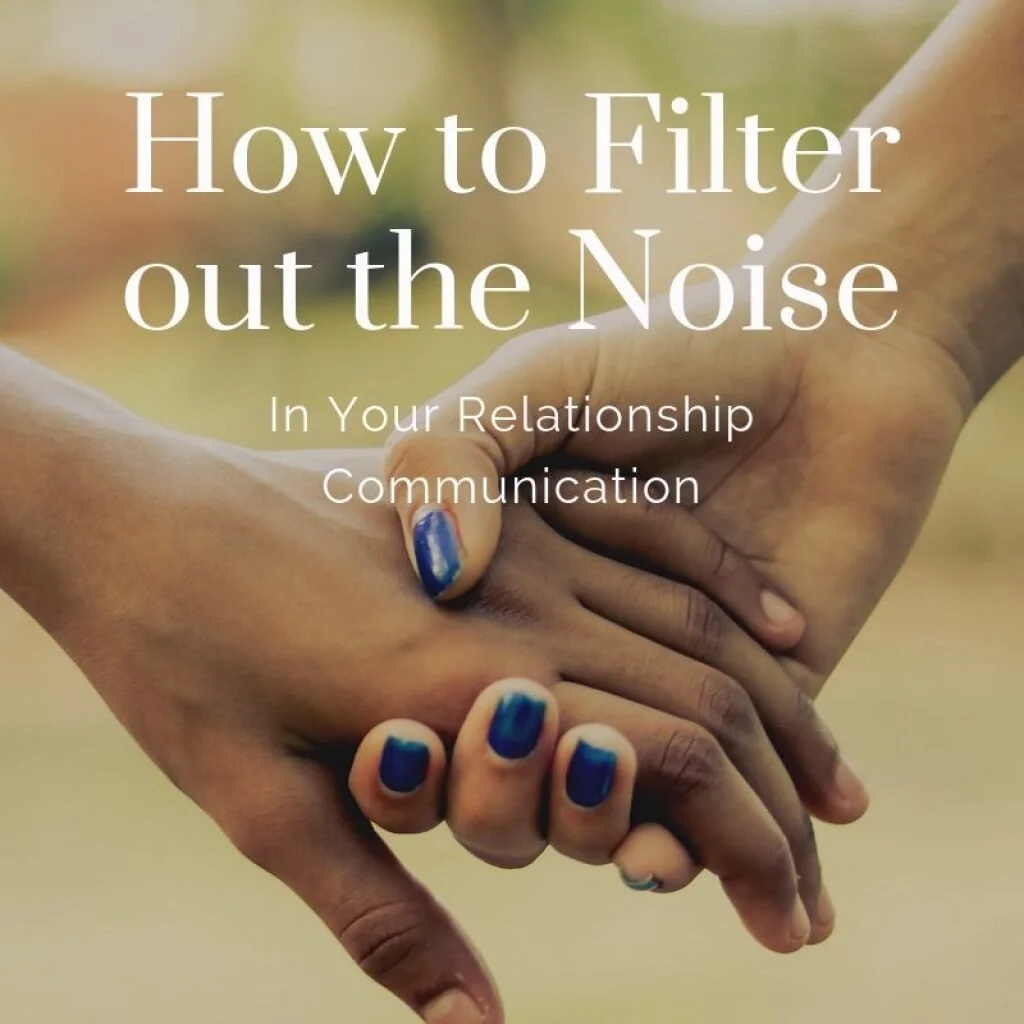How to Filter Out the Noise in Your Relationship Communication
How to Filter Out the Noise in Your Relationship Communication
When every interaction with your partner feels like there's a background of static that keeps you from being able to communicate, here's how to filter out the noise in your relationship communication.
Now that you have the ground rules for communicating with your partner, here are some tips to help you improve your communication even more:
Ask if your partner is willing, ready, and able to listen. Let's face it, just because you're ready to talk doesn't mean that your partner is in a good place to listen. Set yourself up for success by seeing if your partner is ready to have a conversation. This is better than trying to force one when one or both of you are too upset, too tired, too hungry, too overwhelmed, or too distracted. If the timing isn't right, agree on a future time that would work better.
Remember LOVE. The driving force behind communication with your partner should be love -- a greater understanding of each other, an opportunity to see and be seen, greater connection and intimacy. If your intention is to tell your partner what a jerk they are, you're not ready to have to conversation (and it'll do more damage than good)!
Use the feedback wheel:
Describe what you saw and heard. Put on your reporter hat and describe the facts -- not your interpretation of behaviors. Leave your partner's attitude and character out of the description. What would a video camera record?
The story you made up about it. There are the facts about the event, and then there's the narrative that we wrap around the event. This is a great way to describe to your partner what your experience of them is. Using the phrase, "The story that I made up about this is.." has become a mainstay in our relationship to help explain what the experience was while also acknowledging that there's more to the story than our own perception.
How you feel about the event. Unfortunately, we often bastardize the "I feel" statement by turning it into a narrative instead of sharing an actual feeling ("I feel that you were being a jerk!"). Remember that it's your responsibility to own your thoughts and your feelings -- and share your actual feelings (Joy, Pain, Anger, Fear, Shame, Guilt, Love, etc).
Describe in detail what you would like to happen in the future. Remember, clear is kind. This means that you have to do some self reflection so that you can have a better understanding about what you need instead of being frustrated that your partner can't read your mind. "I would like for you to put your phone down, turn off the TV, and look at me" is much more clear than "You never pay attention to me!".
Let go of the outcome. When you're learning how to filter out the noise in your relationship communication, a big part is to let go of the notion that the end result is going to look a certain way.
Shamon and Yolanda Harper are Co-Founders of Harper Therapy and Relationship Guides for couples who are struggling in their relationships. They offer Communications Workshops together and Yolanda offers Marriage Intensives for couples who are looking for deep change. Use the form below or call 813-434-3639 to find out more information.


